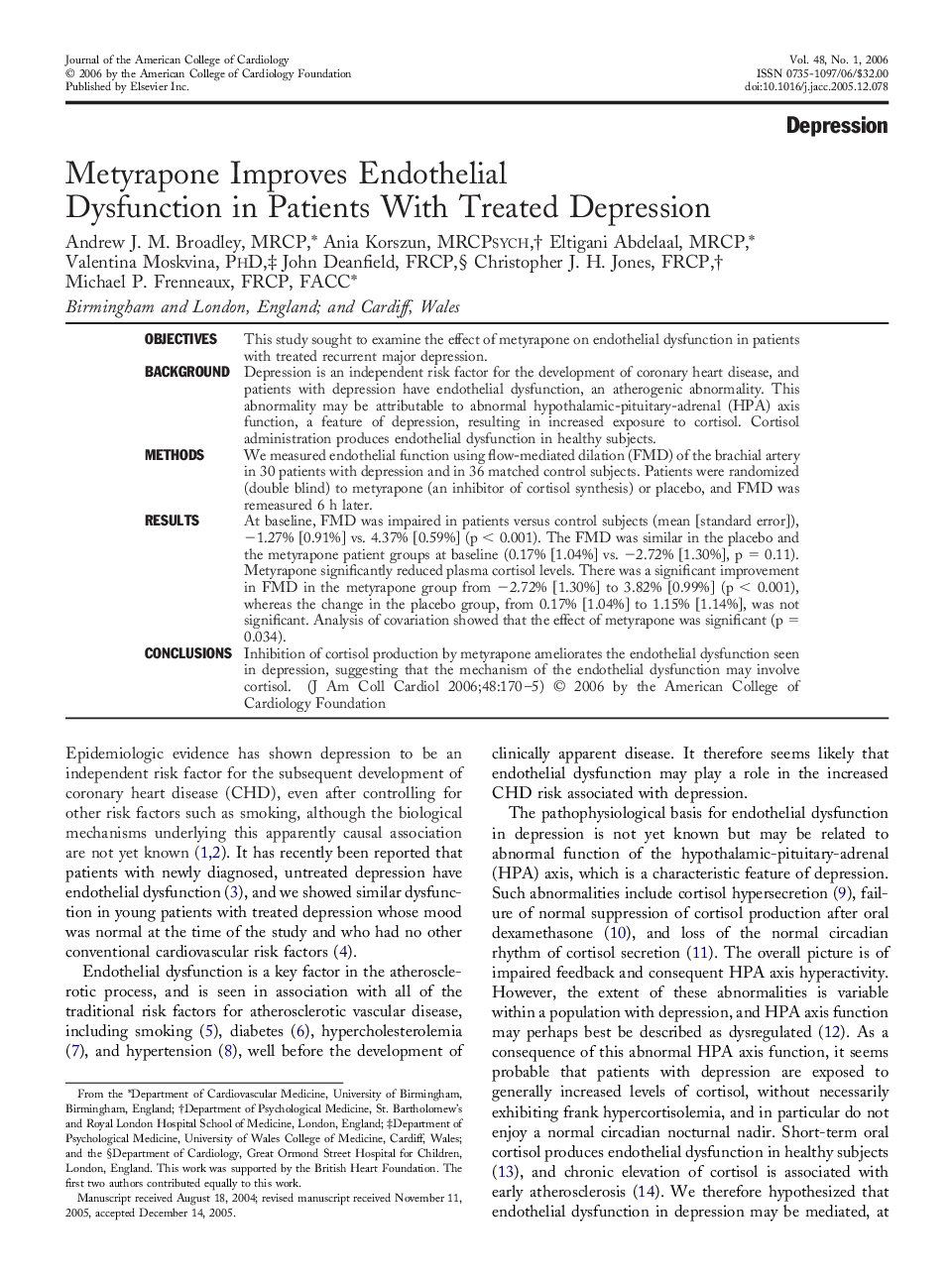| Article ID | Journal | Published Year | Pages | File Type |
|---|---|---|---|---|
| 2952180 | Journal of the American College of Cardiology | 2006 | 6 Pages |
ObjectivesThis study sought to examine the effect of metyrapone on endothelial dysfunction in patients with treated recurrent major depression.BackgroundDepression is an independent risk factor for the development of coronary heart disease, and patients with depression have endothelial dysfunction, an atherogenic abnormality. This abnormality may be attributable to abnormal hypothalamic-pituitary-adrenal (HPA) axis function, a feature of depression, resulting in increased exposure to cortisol. Cortisol administration produces endothelial dysfunction in healthy subjects.MethodsWe measured endothelial function using flow-mediated dilation (FMD) of the brachial artery in 30 patients with depression and in 36 matched control subjects. Patients were randomized (double blind) to metyrapone (an inhibitor of cortisol synthesis) or placebo, and FMD was remeasured 6 h later.ResultsAt baseline, FMD was impaired in patients versus control subjects (mean [standard error]), −1.27% [0.91%] vs. 4.37% [0.59%] (p < 0.001). The FMD was similar in the placebo and the metyrapone patient groups at baseline (0.17% [1.04%] vs. −2.72% [1.30%], p = 0.11). Metyrapone significantly reduced plasma cortisol levels. There was a significant improvement in FMD in the metyrapone group from −2.72% [1.30%] to 3.82% [0.99%] (p < 0.001), whereas the change in the placebo group, from 0.17% [1.04%] to 1.15% [1.14%], was not significant. Analysis of covariation showed that the effect of metyrapone was significant (p = 0.034).ConclusionsInhibition of cortisol production by metyrapone ameliorates the endothelial dysfunction seen in depression, suggesting that the mechanism of the endothelial dysfunction may involve cortisol.
